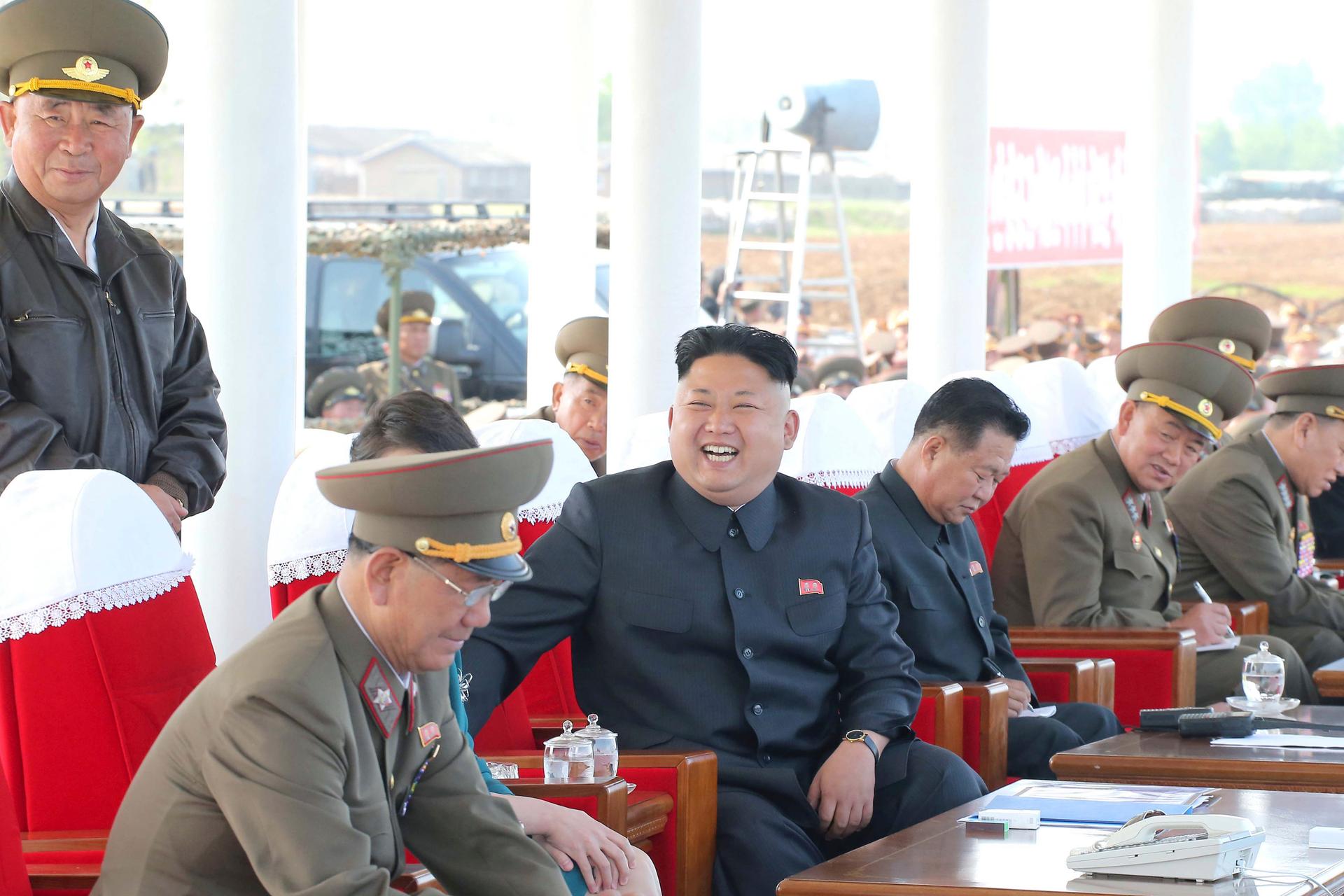Kim Jong-Un is back! Who cares?
North Korean leader Kim Jong-un watches a display at a military air show with Air Force officers in May 2014.
Good news, everyone! After more than a month out of the public eye, Kim Jong-Un is back and better than ever. Or maybe just back. It's hard to tell.
That's because there's precious little information that ever comes out of North Korea. But the country's official news agency let the world know that Kim visited a housing complex on Monday to provide his trademark "field guidance," his first public appearance since Sept. 3.
But if you were one of the many people on Kim Watch over the past month, digesting the rumors that circulated on social media — Does Kim have gout? Diabetes? A mental illness? Cheese addiction? Was there a coup? Is he dead?! — or maybe even scouring the web for clues, David Straub says you probably wasted your time.
In fact, says Straub, the associate director of the Korea Program at Stanford University, signs show that nothing was different in the Hermit Kingdom during Kim's absence. Both South Korean and American officials say things continued as normal.
One of Straub's own colleagues recently came back from a visit to North Korea, and "reported that after a week or so there, that it's absolutely the same as it has been in previous visits," he says — no unusual military movement, nothing.
The colleague said North Korean media reported that Kim Jong-Un was "doing his government work." And unlike the rest of the world, where Kim speculation got plenty of media traction, Straub says it's likely that most North Koreans didn't even hear of the rumors surrounding their leader.
North Korean state media did say the 31-year-old leader was in "some discomfort" due to an injury he sustained during a military inspection, but that was all.
Straub points out the prolonged absence isn't actually that unusual. "Kim Jong-Un himself has been absent in the past for as long as 24 days," he says. "His father, Kim Jong-Il, and his grandfather were absent for many occasions far longer than that."
But Straub admits there's no such thing as being too cautious. After all, "In [2008] Kim Jong-Il was absent for many months because he had a stroke," he says. That's why the US government was paying close attention during Kim's radio silence: "Just in case."
